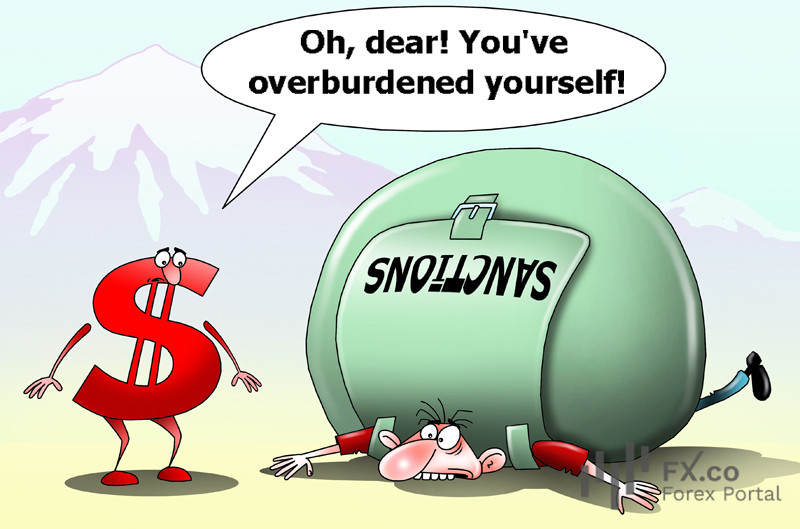
According to Max Booth, a columnist at The Washington Post, US sanctions have gotten out of control. Importantly, they have backfired, hurting the economy.
"The problem is that overusing sanctions can backfire, imposing economic pain on ourselves or, over time, encouraging trading partners to seek other allies and alternatives to the US banking system and dollar, which risks undermining America’s geopolitical and economic leverage," he pinpointed.
The Treasury Department estimated that in late 2021 it imposed sanctions on 9,421 organizations and individuals, a roughly 900% rise over the past 20 years. In 2022, the Treasury Department introduced 2,549 sanctions against new designations while delisting only 225.
Nearly 12,000 entities were under US sanctions as of the start of 2023. Most of the recent sanctions have been related to Russia. Interestingly, the US government also uses export controls, tariffs, and foreign investment control as a de facto form of commercial sanctions. The Commerce Department recently imposed sanctions on exports of advanced microchips to China.
Max Booth assumes that these measures have nothing to do with efficiency. A study by the Peterson Institute for International Economics underlined that over the past years, sanctions have been eating up the federal budget without achieving their goal in many cases. "In the years since, the cost of sanctions has only grown as their use has expanded, but they are not getting any more successful. In many instances, they are downright counterproductive," he pointed out.
Mr. Booth contemplates that sanctions have proved woefully ineffective in the cases of Cuba, North Korea, Myanmar, Venezuela, Syria, Yemen, Nicaragua, and Iran. The sanctions on Russia have inflicted economic damage but not as much as predicted.
"That’s not an argument for forgoing sanctions altogether - sometimes there is no better alternative - but Washington should be much more cautious and strategic in their application," he summed up.
 English
English 
 Русский
Русский Bahasa Indonesia
Bahasa Indonesia Bahasa Malay
Bahasa Malay ไทย
ไทย Español
Español Deutsch
Deutsch Български
Български Français
Français Tiếng Việt
Tiếng Việt 中文
中文 বাংলা
বাংলা हिन्दी
हिन्दी Čeština
Čeština Українська
Українська Română
Română

Comments: